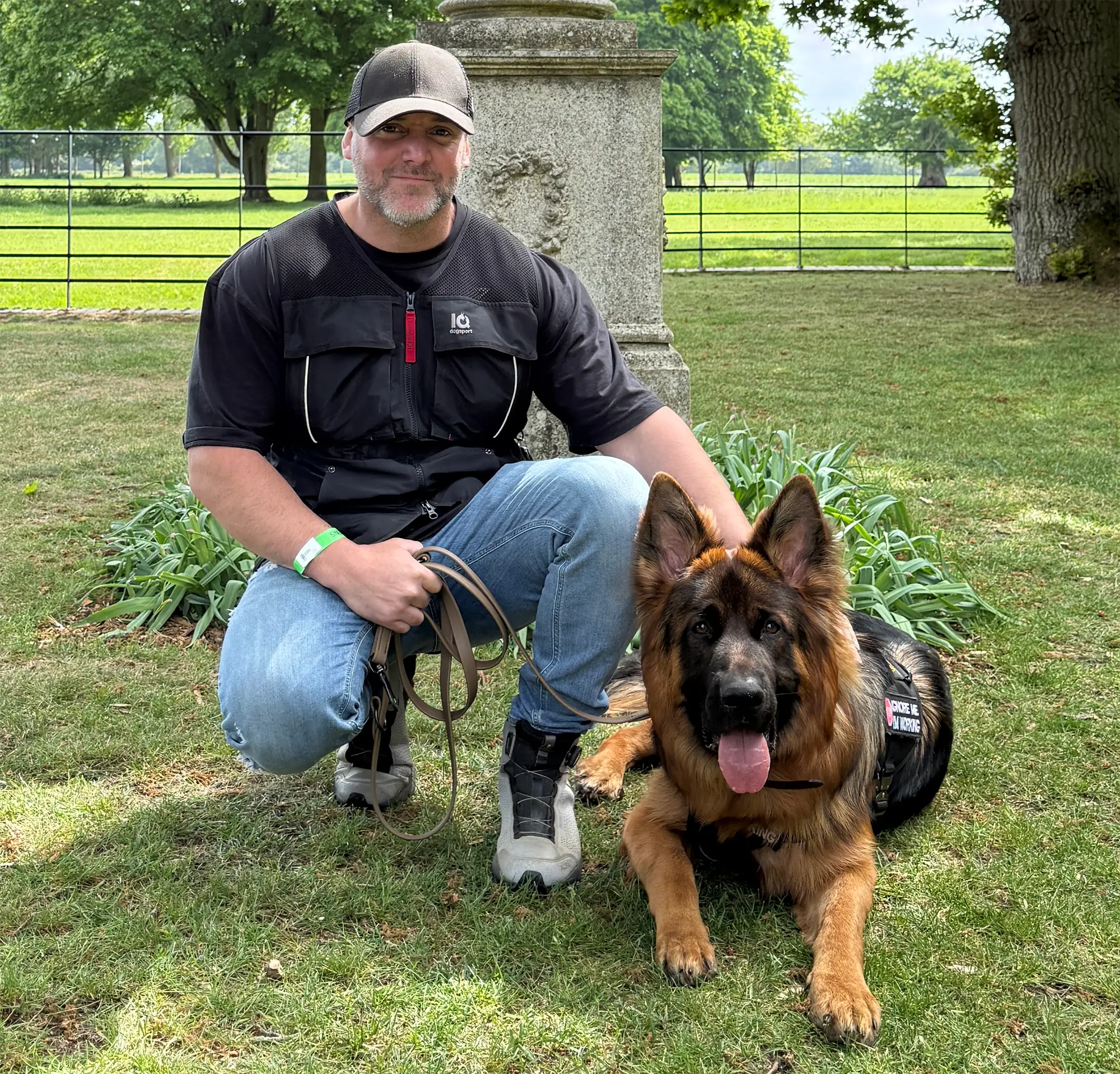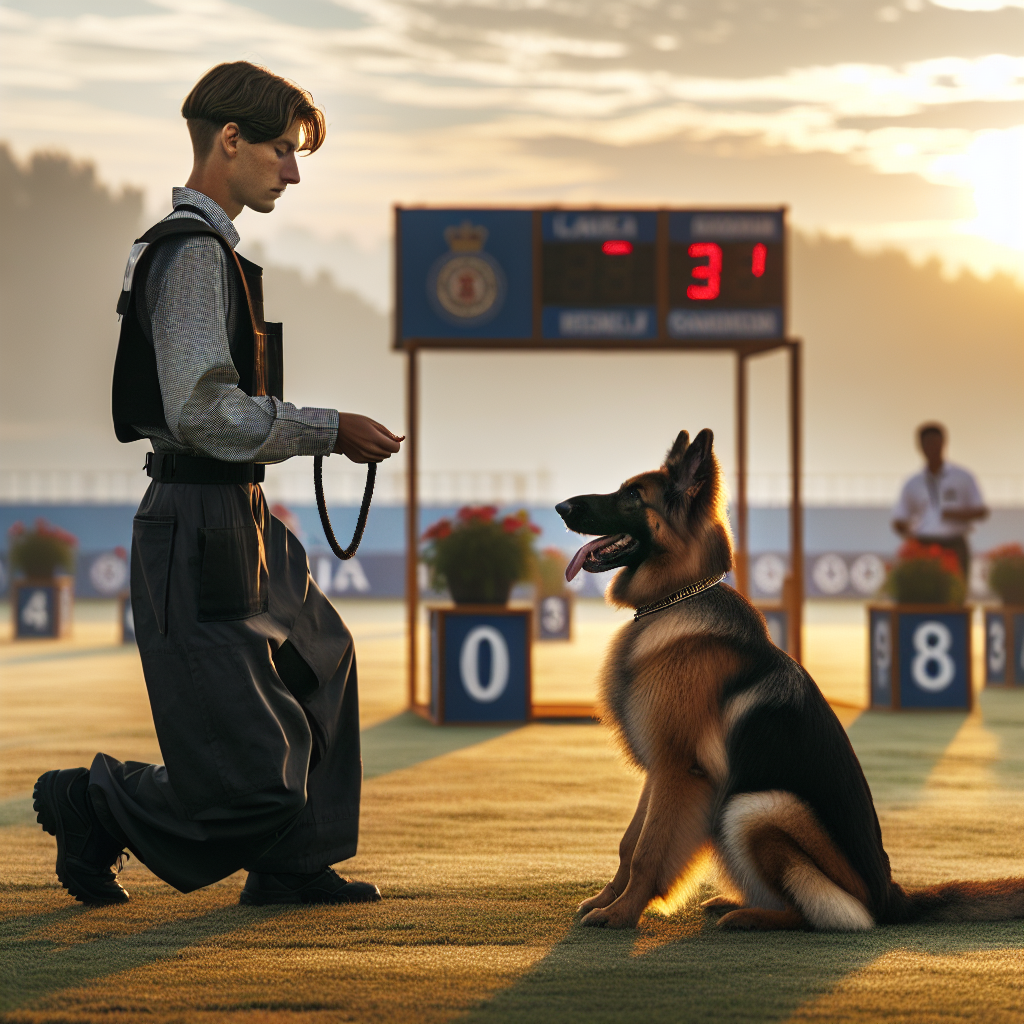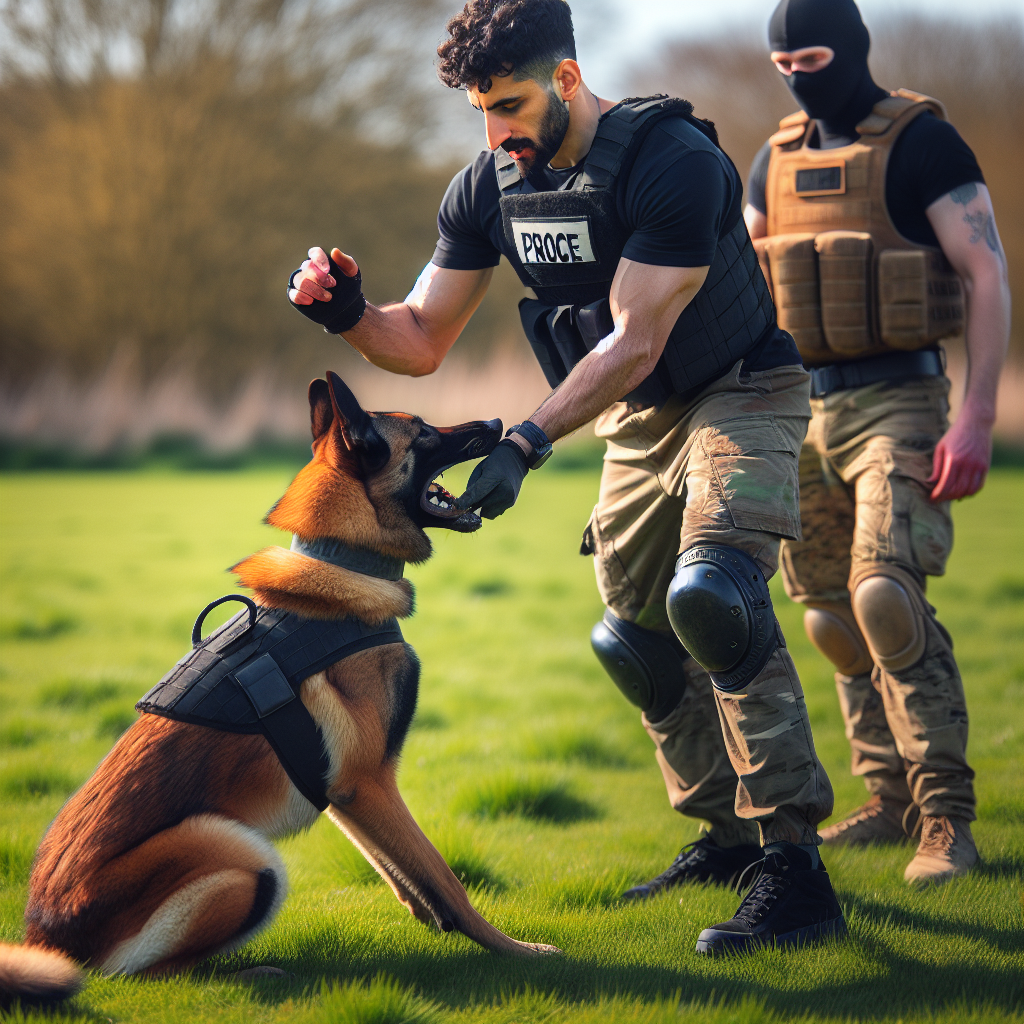Pre Trial Structured Rest Blocks

Why Pre Trial Structured Rest Blocks Win Trials
When the pressure is on, more drilling is not the answer. Pre Trial Structured Rest Blocks turn hard work into reliable results by allowing the body and brain to recover, consolidate skills, and peak at the right moment. At Smart Dog Training we use this system across IGP, obedience, scent work, and protection to deliver calm, consistent performance. Your certified Smart Master Dog Trainer will plan and coach your rest schedule step by step so your dog arrives fresh, focused, and ready to work.
Pre Trial Structured Rest Blocks are planned periods of low arousal, precise routines, and targeted activation that replace heavy training in the final phase before competition. They protect joint and muscle health, steady the nervous system, and sharpen clarity. When applied with the Smart Method, they build trust and accountability so your dog offers clean, confident behaviour under pressure.
What Structured Rest Means at Smart
Structured rest is not doing nothing. It is a focused plan that blends crate rest, place work, short engagement reps, decompression walks, and controlled recovery activities. Each element has a purpose. We reduce load while maintaining clarity and motivation. The result is a dog that feels good, understands expectations, and is eager to perform. Pre Trial Structured Rest Blocks make that outcome repeatable.
Why Rest Beats More Reps Before a Trial
- The nervous system resets so arousal sits in the working zone
- Muscle and connective tissue repair, lowering injury risk
- Skills consolidate through sleep and low stress practice
- Motivation rebounds because the dog does not feel overworked
- Handlers regain clarity and timing by stepping back from grind mode
The Smart Method Applied to Rest Blocks
Every Smart programme uses our structured system to drive real world results. Pre Trial Structured Rest Blocks are a direct expression of the Smart Method.
- Clarity. Commands and markers remain exact. We maintain short, clean reps so cues stay sharp.
- Pressure and Release. Guidance is fair and light. We keep accountability without conflict.
- Motivation. Food and play are used to create positive emotion, never to blow up arousal.
- Progression. We taper intensity while layering small distractions to protect reliability.
- Trust. Calm, predictable routines build confidence in the handler and the work.
How to Build Pre Trial Structured Rest Blocks
Use the following framework to plan your taper. Adjust volume for age, drive, and sport. Your SMDT will personalise the details for your dog and trial calendar.
Four Weeks Out
- Establish baseline routines. Crate, place, leash manners, and calm markers are reinforced daily.
- Set target behaviours. Identify the exact performances needed on trial day. For IGP that may include focused heel, sit out of motion, retrieve, and a neutral hold and bark.
- Run a mock trial once per week to test pressure. Record, then reduce volume afterward.
Two Weeks Out
- Start the taper. Decrease training load by about 30 percent. Keep quality high.
- Shift to short, successful reps. One to three clean reps per exercise, then end on success.
- Increase structured rest windows. Two to three scheduled blocks per day.
Seven Day Rest Block
This is your primary rest week. Pre Trial Structured Rest Blocks form the backbone of the schedule.
- Day 7 to Day 5. Light technical polish only. Five to eight minute micro sessions, twice daily. No heavy cardio or long chains.
- Day 4 to Day 3. Pure clarity. Positions, engagement, and heeling entries with high reward rates. One to two micro sessions daily.
- Day 2. Activation only. One short session to confirm markers and transitions. End early.
- Day 1. Rest. No new work. A calm walk, body check, and sleep.
The 72 Hour Calm Protocol
The final three days are critical. Pre Trial Structured Rest Blocks reduce noise and keep the dog in a calm, ready state.
- Morning. Decompression walk on a loose leash. No fetch, no sprinting.
- Midday. Place work or crate rest for one to two hours with a chew. White noise can help sensitive dogs.
- Afternoon. Five minute skills touch. Reward calm eye contact, a clean heel start, one position change. Finish before arousal rises.
- Evening. Early dinner, hydration, light sniff walk, long sleep.
The Day Before Trial
- Run kit check. Collar, leads, harness, dumbbell, entry papers, water, crate, shade.
- Feed earlier than usual to allow full digestion.
- Single five minute activation session to confirm focus and cues.
- Plenty of structured rest. Keep the house quiet. Protect sleep.
Morning Of Trial
- Arrive early to settle. Park away from chaos.
- Warm up with a three part flow. Engagement, one or two key skills, then calm on place. Stop while your dog is hungry to work.
- Use consistent markers and rewards. Keep sessions short and clean.
Core Tools For Effective Rest
Pre Trial Structured Rest Blocks rely on a few simple tools used with precision.
- Crate Rest. A comfortable crate becomes a cue for recovery. Cover if needed to reduce visual stress.
- Place Work. A raised bed gives a clear boundary for calm control. Reward the choice to stay.
- Leash Guidance. Light pressure and release teach the dog to settle and follow.
- Marker System. Yes, Good, and Finished create clarity. Keep markers consistent across home and field.
- Calm Reinforcement. Use low arousal food delivery. Avoid high intensity tug in the last 48 hours unless your SMDT directs otherwise.
Managing Arousal During Rest
High drive dogs often tip over the working threshold. Pre Trial Structured Rest Blocks keep arousal in the green zone.
- Short engagement. Two to three seconds of focus, reward, reset to calm.
- Breathing and stillness. Handler breath control helps the dog settle. Wait for soft eyes and relaxed jaw before releasing.
- Predictable routines. Same order every day. Dogs relax when they can predict what comes next.
- Environment control. Reduce triggers. Park away from busy entries. Use visual barriers around the crate.
Nutrition, Hydration, and Sleep
Recovery fuels performance. Align your care routine with Pre Trial Structured Rest Blocks.
- Food. Keep diet stable. Do not add new supplements just before the event. Feed earlier on trial day.
- Hydration. Offer water often in small amounts. Bring familiar water if your dog is picky.
- Sleep. Guard the night before. Use a dark, quiet room. Crate for safety and routine.
- Body care. Gentle massage and passive range of motion can help. Avoid heavy workouts.
Common Mistakes To Avoid
- Last minute drilling. Adds fatigue and reduces clarity.
- Over activation with toys. Spikes arousal that you cannot bring back down.
- Chaotic warm up areas. Erodes focus before you step on the field.
- Breaking routines. Dogs read patterns. Keep your rest pattern steady.
- Changing equipment. Use what you trained with.
Adapting Rest Blocks To Different Sports
Pre Trial Structured Rest Blocks flex to match the demands of your sport while keeping the same core structure.
- IGP. Reduce tracking distance in the final week. Keep one short article indication. In obedience, polish heeling entries and fronts only. In protection, one calm grip confirmation early in the week if your SMDT advises it, then stop.
- Obedience. Focus on calm positions, clean fronts and finishes, and a predictable ring entry routine. No long sequences in the last 72 hours.
- Agility. Keep joints fresh. Replace jump reps with flat work and body awareness. One quick start line routine, then rest.
- Scent Work. Very short hides with easy pays. Protect mental freshness and prevent over searching.
Reading The Dog And Adjusting
Watch for signals that guide your plan. Pre Trial Structured Rest Blocks are living schedules. Adjust based on feedback.
- Needs more rest. Slower responses, flat engagement, stiff movement, or sloppy positions.
- Needs more activation. Overly sleepy, disengaged, or dull. Add a short focus game, then return to calm.
- Just right. Bright eyes, quick response to name, balanced excitement that settles on place.
Case Example From The Field
A high drive Malinois preparing for IGP 1 arrived at our program with great work but inconsistent ring entries. We built a plan around Pre Trial Structured Rest Blocks. In the final seven days we cut volume by half, used two micro sessions per day, and tripled structured rest. We rehearsed a three step entry, then ended warm ups early. On trial day the dog showed steady heeling and a clean dumbbell retrieve with a calm return to the handler. The difference was not more reps. It was the quality of rest and the clarity of routine.
How Smart Supports Your Trial Plan
Smart Dog Training designs and delivers trial preparation from first session to finish. Your Smart Master Dog Trainer builds Pre Trial Structured Rest Blocks that fit your dog, your sport, and your schedule. We map rest, activation, and ring routines so you know exactly what to do and when to do it.
Ready to turn your dog’s behaviour around? Book a Free Assessment and connect with a certified Smart Master Dog Trainer - available across the UK.
Pre Trial Structured Rest Blocks In Practice
Below is a sample one day outline you can adapt with your trainer.
- Wake and toilet. Calm greeting. No hype.
- Light sniff walk. Ten to fifteen minutes. Loose leash.
- Breakfast. Early feeding. Quiet crate time after.
- Mid morning micro session. Three minutes of engagement and two position changes. Finished marker. Return to rest.
- Midday rest. One to two hours of crate or place with a chew.
- Afternoon micro session. One heel start, one recall setup, one calm reward.
- Evening decompression. Short walk, no play with other dogs.
- Lights out early. Dark, quiet room. Consistent routine.
Troubleshooting During The Taper
- If the dog is vocal in the crate, practice short crate reps with quick rewards for quiet. Cover the crate to reduce stimulation.
- If the dog surges on activation, cut the rep in half. Reward earlier and return to calm.
- If handlers feel anxious, write the schedule and follow it. Routine removes worry.
Handler Mindset And Ring Presence
Pre Trial Structured Rest Blocks also shape the handler. Calm, consistent handling in the last week teaches the dog what your energy will be on trial day. Move slower, breathe deeper, and speak with clear markers. Your dog reads you. The Smart Method keeps both ends of the lead steady.
FAQs About Pre Trial Structured Rest Blocks
What are Pre Trial Structured Rest Blocks
They are planned recovery periods that replace heavy training in the final phase before a trial. We use calm routines, short activation, and precise markers to peak performance.
How far out should I start Pre Trial Structured Rest Blocks
Begin the taper about two weeks out, with a focused seven day rest block and a 72 hour calm protocol leading into trial day.
Will my dog lose drive if I reduce training
No. With the Smart Method, motivation actually rises. Pre Trial Structured Rest Blocks protect drive by preventing fatigue and keeping work fresh.
Can this work for puppies or first time dogs
Yes. We simplify the plan and focus on routines. Your SMDT will scale Pre Trial Structured Rest Blocks to match age and experience.
What if my dog needs daily exercise
We use decompression walks, sniffing, and short engagement. The goal is calm movement, not high arousal play.
How do I warm up on trial day
Use a three part warm up. Engagement, one or two key skills, then settle on place. Stop early so your dog is eager to work.
Do I still train protection during the rest block
Usually no. If needed, we do one very light confirmation early in the week. Your Smart trainer will decide based on the dog.
What if I have back to back trial days
Recover between days with crate rest, hydration, a short sniff walk, and light activation only. Keep the routine consistent.
Conclusion
Winning on the field is not about doing more. It is about doing what matters most at the right time. Pre Trial Structured Rest Blocks channel all the work you have done into a calm, confident performance when it counts. With Smart Dog Training you get a clear plan, expert coaching, and a trusted routine that holds up under pressure.
Your dog deserves training that truly works. With certified Smart Master Dog Trainers (SMDTs) nationwide, you'll get proven results backed by the UK's most trusted dog training network. Find a Trainer Near You



